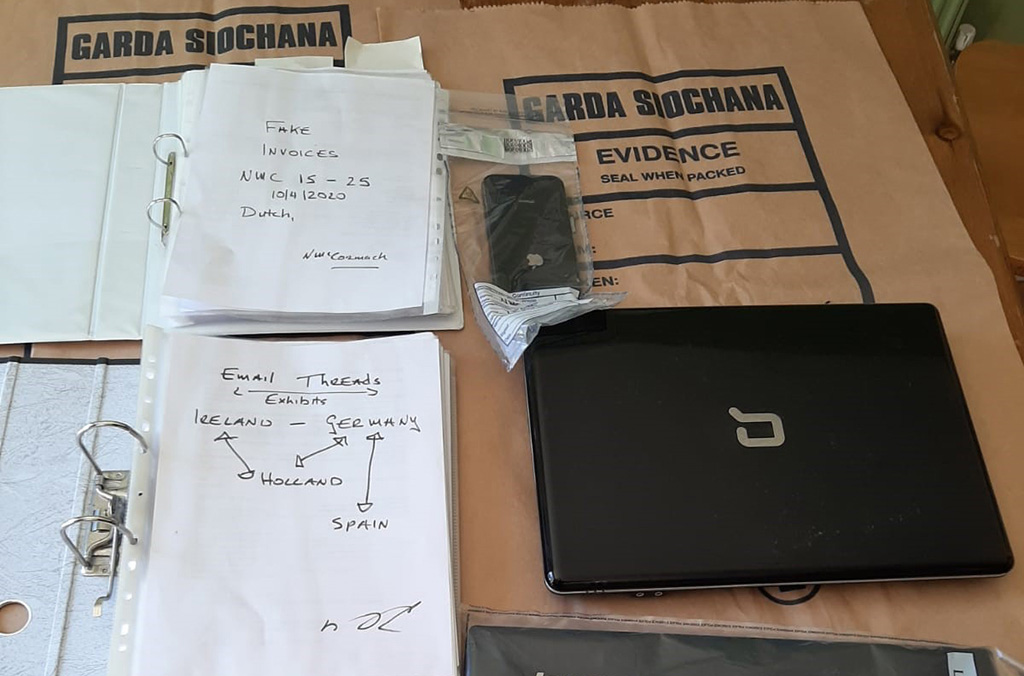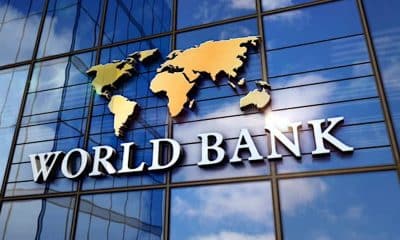Nigeria News
Interpol Links €500,000 COVID-19 Fraud To Nigeria

The International Criminal Police Organisation (Interpol) has unveiled details of an international criminal network which took advantage of loopholes in technology to perpetrate crime through COVID-19.
According to Interpol in a statement on its website, the criminals used compromised emails, cloned websites, and other fraudulent means to perpetrate advance-fee fraud and money laundering.
Interpol in the statement on its website titled, ‘Unmasked: International COVID-19 fraud exposed’ revealed that the criminal network ran its operations through Ireland, Netherlands, and Germany but some of the funds involved were eventually traced to be destined for an account in Nigeria.
Particularly, a €500,000 COVID-19 fraud was linked to Nigeria after the fraud was uncovered by financial institutions and authorities across Germany, Ireland, and the Netherlands, as part of a case coordinated by INTERPOL.
Two suspects have already been arrested in the Netherlands in connection with the crime while documents and other devices were also recovered.

Some of the pieces of evidence seized (Photo Credit: Interpol website)
Interpol noted that more arrests are likely as specialized units continue to carry out investigations.
The statement dated 14th April 2020 on the Interpol website, was retrieved by our correspondent on 30th December.
It reads:
“A sophisticated fraud scheme using compromised emails, advance-payment fraud and money laundering has been uncovered by financial institutions and authorities across Germany, Ireland and the Netherlands, as part of a case coordinated by INTERPOL.”
“In mid-March, as a number of countries were going into lockdown due to the coronavirus outbreak, German health authorities contracted two sales companies in Zurich and Hamburg to procure EUR 15 million worth of face masks. With a global shortage on medical supplies complicating usual business channels, the buyers followed new leads in the hopes of securing the masks.”
“It all started with an email address and website which appeared to be linked to a legitimate company in Spain selling face masks. Unbeknownst to the buyers, the site was a fake and their legitimate email addresses had been compromised.”
“Through email correspondence, the company initially claimed to have 10 million masks, only for the delivery to fall through. As consolation, they then referred the buyers to a ‘trusted’ dealer in Ireland. The Irish middleman promised to put them in touch with a different supplier, this time in the Netherlands.”
“Claiming to have a strong commercial relationship with the company, the man provided assurances that the alleged Dutch company would be able to supply the 10 million face masks. An agreement for an initial delivery of 1.5 million masks was made, in exchange for an up-front payment of EUR 1.5 million.”
“The buyers initiated a bank transfer to Ireland and prepared for delivery, which involved 52 lorries and a police escort to transport the masks from a warehouse in the Netherlands to the final destination in Germany.”
“Just before the delivery date, the buyers were informed that the funds had not been received and that an emergency transfer of EUR 880,000 straight to the Dutch supplier was required to secure the merchandise.”
“When the buyers realized they had been duped, they immediately contacted their bank in Germany, which in turn contacted INTERPOL’s Financial Crimes unit, setting off a race to intercept the funds and follow the money trail.”
“Banks, financial intelligence units and judicial authorities, as well as partner organizations Europol and EUROJUST, joined INTERPOL in the chase.”
“INTERPOL contacted its National Central Bureau in Dublin as well as the Irish bank. Prompt intervention by the Garda National Economic Crime Bureau allowed them to freeze the 1.5 million in the account and identify the Irish company involved.”
“The Dutch Fiscal Information and Investigation Service quickly tracked down the EUR 880,000 which had been transferred from the German company. Nearly EUR 500,000 of those funds had already been sent to the United Kingdom, all of which was destined for an account in Nigeria.”
“Europol activated its professional networks to reach key contacts in the banking sector. Thanks to an alert raised by investigators, the UK bank was able to recall the full amount. Those funds have now been returned to the Netherlands and frozen by authorities.”
“They adapted their sales pitches to take advantage of strained supply chains and generate huge profits. I can only salute the quick work of both the private and public authorities involved. INTERPOL will continue its work on the case – and the many others like it – in close cooperation with all of our partners,” added the INTERPOL Chief.”
“The operation has already led to the arrest of two suspects in the Netherlands. More arrests are likely as specialized units continue to liaise closely with INTERPOL, as well as the public prosecutor and police forces in Traunstein (Germany) on leads generated by seized devices.”
“INTERPOL would like to remind members of the public to be vigilant as organized crime groups continue to adapt their activities to benefit from the global health crisis.”
Meanwhile, with Nigeria battling the second wave of the deadly coronavirus (COVID-19), the federal government has ordered states to adhere strictly to its curfew.
Complying with the federal government directive, many states have either banned or restricted crossover service in their domain.












